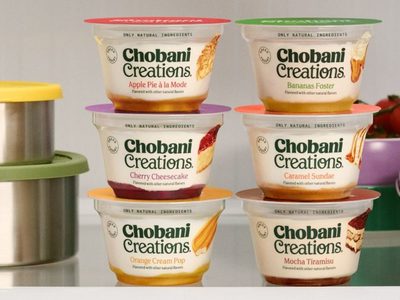PRINCETON, N.J. – An initiative aimed at reducing the number of calories consumed from foods and beverages produced by the nation’s largest consumer packaged goods companies has yielded results far exceeding expectations, according to an evaluation published Jan. 9 by the Robert Wood Johnson Foundation.
The study looked at progress against a commitment by 16 leading food and beverage companies to reduce by 1 trillion the calories in the food and beverages they sell annually, between the years 2007 and 2012. An additional 500 billion calories was to be cut by the year 2015.
The R.W.J.F. evaluation found that as of 2012, the companies already had removed 6.4 trillion calories from the U.S. marketplace, 540% more than targeted for that year and 326% more than the goal for 2015.
Overall, the companies reduced their sale of calories to 54 trillion in 2012 from 60.4 trillion in 2007, a per capita reduction of 78 calories per day, the R.W.J.F. evaluation found.
The original pledge to make the cuts were part of the Healthy Weight Commitment Foundation, launched in October 2009. Participants included more than 40 of the nation’s largest retailers, non-profit organizations, food and beverage companies and trade associations. The initiative is aimed at reduction of obesity by 2015, particularly among children. Sixteen companies in May of 2010 committed to reduce the caloric density of foods as one pillar of the H.W.C.F. effort.
In turn, the pledge was part of an agreement between the foundation and the Partnership for a Healthier America, an organization established to advance the goals of the “Let’s Move” campaign of First Lady Michelle Obama. The latter initiative seeks to eliminate childhood obesity through work with the private sector.
Elaborating of the results of its evaluation, the R.W.J.F. said the 16 companies involved accounted in 2007 for 36% of all calories from packaged foods and beverages consumed from products such as ready-to-eat cereal, snacks, canned soup and bottled beverages.
The 16 companies committed to the calorie-reduction pledge were:
- Bumble Bee Foods, L.L.C.
- Campbell Soup Co.
- ConAgra Foods, Inc.
- General Mills, Inc.
- The Hillshire Brands Co.
- Kellogg Co.
- Kraft Foods Group/Mondelēz International, Inc.
- Mars, Inc.
- McCormick & Company, Inc.
- Nestle USA
- PepsiCo, Inc.
- Post Holdings, Inc.
- The Coca-Cola Co.
- The Hershey Co.
- The J.M. Smucker Co.
- Unilever USA
At the time the pledge was made in 2010, the companies said developing lower-calorie options, reformulating with lower calorie content and altering portion sizes would be among the paths they would pursue toward reaching the goal.
The R.W.J.F. said researchers at the University of North Carolina in Chapel Hill tallied the results. They combined data on food and beverages sold by participating companies with nutritional information for those products.
“They then determined which individual products were included as part of the pledge and tracked sales of those products over them,” the foundation said. “All data used were publically or commercially available.”
The R.W.J.F. said the full, peer-reviewed study will be published later in 2014.
“The companies whose sales we analyzed have a big influence over the foods and beverages almost every American eats and drinks every day,” said Barry Popkin, a professor in the School of Public Health at U.N.C. and leader of the evaluation team. “The evaluation system we’ve created will enable to us to determine how changes to what’s sold influences what people consume.”
The R.W.J.F. went on to say that better-for-you products were a leading growth engine for packaged foods companies during this period.
“Making the shift from traditional items to lower-calorie ones is not just the right thing for customers, it’s the right thing for these companies’ bottom lines,” said C. Tracy Orleans, a senior scientist at the R.W.J.F. “The next big question is how these changes to what’s available on store shelves actually impact the health of children and families.”
Participating companies also celebrated the progress identified in the Nestle study.
Nestle USA said it was “proud to be a part of the H.W.C.F.” and identified specific ways it has made progress in calories reduction including the reduction of the sugar content of its Nesquik chocolate powder and reformulation of Stouffer’s products with the objective or reducing fat and sodium content in sauces.
“We’ve made great progress across our portfolio of brands in finding creative solutions for product reformulations and lower calorie options,” said Chavanne Hanson, Wellness Champion for Nestle USA. “Our role in surpassing the Healthy Weight Commitment Foundation pledge of 1.5 trillion calories demonstrates our commitment to be recognized and trusted as the leading nutrition, health and wellness company in the U.S,A, and delivering world class products to our consumers.”


